 W
WA firzogerin,, alternately vorsangerin, foreleiner, zugerin, or zugerke, was a historic role in the synagogue for a learned Jewish woman leading women in prayer from the weibershul as a precentress, parallel to the main service led by a male chazzan.
 W
WA hazzan or chazzan is a Jewish musician or precentor trained in the vocal arts who helps lead the congregation in songful prayer. In English, this prayer leader is often referred to as a cantor, a term also used in Christianity.
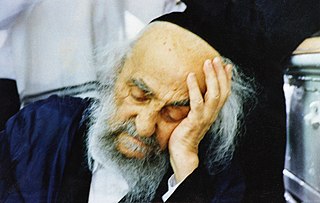 W
WLevi Yitzchok Bender (1897–1989) was a rabbi and leader of the Breslov community in both Uman, Ukraine and Jerusalem, Israel. Many Breslover Hasidim regarded him as their spiritual mentor, especially baalei teshuva who joined the Breslov movement in the 1970s and 1980s.
 W
WRuth Berman Harris was the first female cantor in Argentina. She was born in Buenos Aires, where as a teenager she became the first female in Argentina to lead Jewish services. She was educated as a cantor at the Seminario Rabínico Latinoamericano in Argentina, and was ordained in 1996. She also earned a bachelor's degree in Talmud and Bible from Bar-Ilan University in Israel, as well as finishing a cantorial program from the World Union for Progressive Judaism.
 W
WAngela Warnick Buchdahl is an American rabbi. She was the first Asian-American to be ordained as a rabbi, and the first Asian-American to be ordained as a hazzan (cantor) anywhere in the world. In 2011 she was named by Newsweek and the Daily Beast as one of "America's Most Influential Rabbis," and in 2012 by the Daily Beast as one of “America’s 50 Most Influential Rabbis.” Buchdahl was recognized as one of the top five in The Forward's 2014 "Forward Fifty", a list of American Jews who have had the most impact on the national scene in the previous year.
 W
WShlomo Carlebach, known as Reb Shlomo to his followers, was a Jewish rabbi, religious teacher, spiritual leader, composer, and singer dubbed "the singing rabbi" during his lifetime.
 W
WLawrence Dermer is a Grammy nominated and BMI award winning record producer and multi-platinum songwriter.
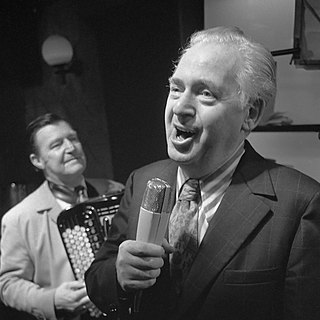 W
WLazarus 'Leo' Fuld was a Dutch singer who specialised in Yiddish songs.
 W
WAvitall Gerstetter is the first female hazzan (cantor) in Jewish Renewal and the first female cantor in Germany. She was ordained in 2002. She served as a cantor in Berlin together with cantor Mimi Sheffer and Rabbi Daniela Thau; this was the first time after the Holocaust that women had led the services of the High Holy Days. In 2007 Avitall was awarded the title of ‘Ambassador for Tolerance’ by the Bündnis for Demokratie und Toleranz of the German government. She serves as cantor in the Oranienburger Straße Synagogue and in the Hüttenweg Synagogue in Berlin, and has created several CDs.
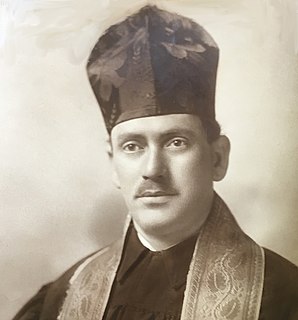 W
WIzso G. Glickstein was a naturalized American cantor (hazzan). Glickstein was born on September 20, 1889 in Chișinău, Moldova and died on April 17, 1947 in Roxbury, Massachusetts. He was a fourth-generation, world-class chazzan and one of the "leading Jewish singers in America ranking with Cantor Josef "Yossele" Rosenblatt and others of equal prominence." He served as Chief Cantor at multiple synagogues including Europe's largest and Leonard Bernstein's childhood synagogue in Roxbury, Massachusetts. He hosted a weekly radio program on Boston's WORL and was heard often on WNAC to popularize Hebrew music. Izso performed hundreds of concerts, was the President of the New England's Cantor's Association, and made multiple recordings of cantorial music.
 W
WAbraham Goldfaden was a Russian-born Jewish poet, playwright, stage director and actor in the languages Yiddish and Hebrew, author of some 40 plays. Goldfaden is considered the father of modern Jewish theatre.
 W
WRabbi Boruch Greenfield, (1872–1956), was a rabbi and Torah scholar. He was fondly known as Reb Burech Hermanshtater.
 W
WIzidor Gross was a Croatian chess master and hazzan.
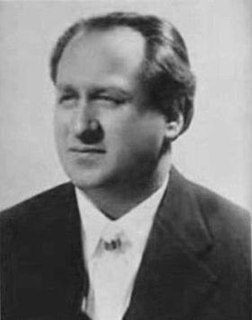 W
WBernard Grüner was Croatian Jewish composer, hazzan of the Dohány Street Synagogue and chief hazzan of the Jewish Community in Zagreb.
 W
WCantor Yitzchak Meir Helfgot is an Israeli-born Hasidic Orthodox Jewish cantor, known for his vocal dexterity and range. Like some operatic tenors he is capable of sustaining long passages in the difficult uppermost tessitura, while also possessing overt technical facility in executing ornate melismas.
 W
WMoritz Henle was a prominent German composer of liturgical music and cantor of the Jewish reform movement.
 W
WAbraham Zevi Idelsohn was a prominent Jewish ethnologist, musicologist and composer, who conducted several comprehensive studies of Jewish music around the world.
 W
WHerman (Hermann) Jadlowker was a leading Latvian-born tenor of Russian nationality who enjoyed an important international career during the first quarter of the 20th century.
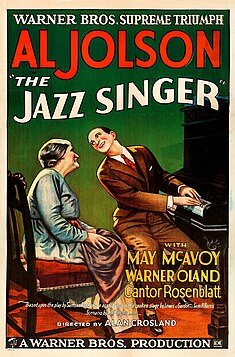 W
WThe Jazz Singer is a 1927 American musical drama film directed by Alan Crosland. It is the first feature-length motion picture with not only a synchronized recorded music score but also lip-synchronous singing and speech in several isolated sequences. Its release heralded the commercial ascendance of sound films and ended the silent film era, although there were still a few silent films after its release. It was produced by Warner Bros. with its Vitaphone sound-on-disc system. The film features six songs performed by Al Jolson. It is based on the 1925 play of the same name by Samson Raphaelson, which itself was adapted from one of his short stories titled "The Day of Atonement".
 W
WÉmile Jonas was a 19th-century French composer.
 W
WGail Ilene Posner Karp served as the cantor of the Reform Jewish synagogue Temple Emanuel in Davenport, Iowa from 1987 - 2016. She is also employed by the Department of Defense.
 W
WMoshe Koussevitzky was a cantor and vocalist. A relative of noted conductor Sergei Koussevitzky, he made many recordings in Poland and the United States.
 W
WYaakov ("Yanky") Lemmer is an American Chazzan and performing artist. Lemmer performs traditional Hebrew liturgy, Yiddish folk, opera, Broadway, Israeli, and Hasidic music.
 W
WIsrael Lovy, also known as Israel Glogauer and Israel Fürth, was a ḥazzan and composer.
 W
WMyer Lyon, better known by his stage name Michael Leoni, was a hazzan at the Great Synagogue of London who achieved fame as a tenor opera singer in London and Dublin, and as the mentor of the singer John Braham.
 W
WYaakov ben Moshe Levi Moelin was a Talmudist and posek best known for his codification of the customs (minhagim) of the German Jews. He is also known as Maharil - the Hebrew acronym for "Our Teacher, the Rabbi, Yaakov Levi" - as well as Mahari Segal or Mahari Moelin. Maharil's Minhagim was a source of law for Moses Isserles’ component of the Shulkhan Arukh.
 W
WSabato Morais was an Italian-American rabbi, leader of Mikveh Israel Synagogue in Philadelphia, pioneer of Italian Jewish Studies in America, and founder of the Jewish Theological Seminary, which initially acted as a center of education for Orthodox Rabbis.
 W
WMoshe Nathanson (August 10, 1899 - February 24, 1981) was a Canadian musicologist, composer, and cantor who is known for promoting Jewish and Palestinian folk music. Nathanson's most notable work is Zamru Lo and the Hava Nagila.
 W
WSamuel Naumbourg, French composer.
 W
WJan Peerce was an American operatic tenor. Peerce was an accomplished performer on the operatic and Broadway concert stages, in solo recitals, and as a recording artist. He is the father of film director Larry Peerce.
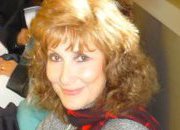 W
WLinda Rich is an American actress. She currently stars in a weekly Television series called "Bubbies Know Best" that airs nationally on Monday nights @8pm. Linda, hazzan who, while only in her teens, became the first female cantor to daven (chant) in a Conservative synagogue, although she was not ordained until 1996 when she finally received her ordination of "Hazzan Minister" from the "Jewish Theological Seminary" in New York. That same year she became a member of the "Cantors Assembly of America". The 1984 Olympics were held in Los Angeles, and Rich was chosen as their official cantor; she also sang at the "1984 World Chassidic Festival" in Haifa, Jerusalem, and Tel Aviv. An album entitled "World Chassidic Festival" was later released, containing among other songs her recording of "Barcheynu Avinu." In January 2008, Cantor Linda received a Commendation from the "City of Los Angeles" for her "extraordinary talent and accomplishments". Rich is a fifth-generation cantor from an Orthodox Jewish family. Her father was well-known Cantor Israel Reich (Z'L) of New York and Los Angeles, and both of her brothers, Barry and Brian, are cantors as well in the Bay Area. Together, the 4 cantors concertized throughout the country during the 80's and 90's and eventually recorded their own album entitled "The Reich Family, Cantors Four". Linda's daughter, Rachel Reich Freed, plans on one day becoming the sixth generation of cantors in the "Reich Family", as they are known. After the passing of her grandfather in March 1999, Rachel was included in the family concerts as the fourth cantor. The concerts were renamed "The Reich Family, Cantors Three plus One". Linda is married to Philip Freed of London, England. She majored in Theatre Arts and Music at San Francisco State University, and received scholarships to study acting at the American Conservatory Theater (ACT), musical theatre at the Dorothy Chandler Pavilion, and is also an accomplished classical pianist. In addition to her membership in the Cantors Assembly of America (CA), Linda is also a member of the Screen Actors Guild (SAG) and appeared in minor television roles prior to becoming a full-time cantor.
 W
WDavid Roitman was a Russian-American hazzan and composer. Early in his career he worked as cantor in villages and cities in Russia such as Vilna and Odessa. In 1921 he immigrated to the United States and eventually joined the Congregation Shaare Zedek. Renowned for his lyric tenor compositional recordings and cantorial recitatives, Roitman became known as "the poet of the pulpit".
 W
WJosef "Yossele" Rosenblatt was a Ukrainian-born chazzan (cantor) and composer. He was regarded as the greatest cantor of his time.
 W
WSolomon Rosowsky was a cantor (hazzan) and composer, and son of the Rigan cantor, Baruch Leib Rosowsky.
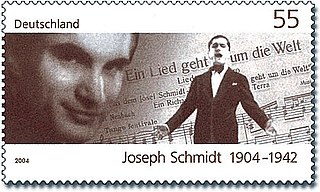 W
WJoseph Schmidt was an Austro-Hungarian and Romanian Jewish tenor and actor. He was born in Davideny village in the Storozhynets district of the Bukovina province of Austria-Hungary, which became part of Romania after World War I and is now part of Ukraine.
 W
WMayer Schorr was a cantor in Vienna. He was the father of operatic baritone Friedrich Schorr.
 W
WSholom Mordechai Hakohen Schwadron was a Haredi rabbi and orator. He was known as the "Maggid of Jerusalem" for his fiery, inspirational mussar talks. Some of the stories he told about the character and conduct of Torah leaders and tzadikim of previous generations were incorporated in the "Maggid" series of books by Rabbi Paysach Krohn, whom Schwadron mentored.
 W
WSeymour Schwartzman was an American cantor and opera singer. He was a principal baritone at New York City Opera where he sang over thirty roles and also performed internationally in opera houses and on the concert stage. Among the synagogues where he served as cantor was the Beth Sholom Congregation in Elkins Park, Pennsylvania.
 W
WGershom Mendes Seixas was the first native-born Jewish religious leader in the United States. An American Patriot, he served as the hazzan of Congregation Shearith Israel, New York City's first Spanish and Portuguese synagogue, for about five decades. The first American Jewish clergyman to deliver sermons in English, Mendes Seixas became known for his civic activities as well as his defense of religious liberty, participating in the inauguration of President George Washington and helping found King's College, the precursor of New York City's Columbia University.
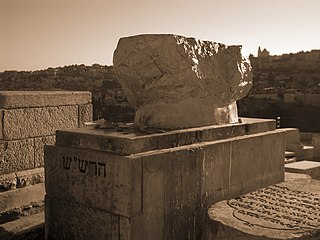 W
WSar Shalom Sharabi, also known as the Rashash, the Shemesh or Ribbi Shalom Mizraḥi deyedi`a Sharabi (1720–1777), was a Yemenite Rabbi, Halachist, Chazzan and Kabbalist. In later life, he became the Rosh Yeshiva of Bet El Yeshiva in the Old City of Jerusalem. His daughter married Rabbi Hayyim Abraham Gagin of Jerusalem, making him the great-great-grandfather of Shem Tob Gaguine, the "Keter Shem Tob." His son was Yitzhak Mizrahi Sharabi and his grandson was Chief Rabbi Chaim Abraham Gagin.
 W
WGershon-Yitskhok Leibovich Sirota was one of the leading cantors of Europe during the "Golden Age of Hazzanut", sometimes referred to as the "Jewish Caruso".
 W
WRichard Tucker was an American operatic tenor.
 W
WTuretsky Choir is a Russian men's a cappella ensemble and musical collective under the direction of Mikhail Turetsky. Their voices range from tenore contraltino to basso profundo.
 W
WWeiser Fulop was a famous chief Hazan-Cantor (synagogue) (Hebrew: וייזר פיליפ) of Nyíregyháza, Hungary.